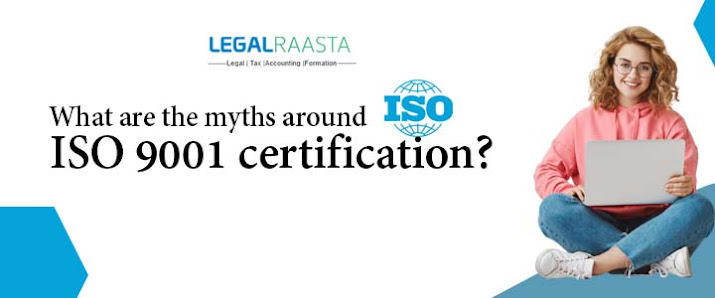What are the myths around ISO 9001 certification?
Despite the fact
that ISO 9001 has been around for a long time and that many people are aware of
it, the quantity of misconceptions around the standard is startling. What are
the origins of these myths, and what is the truth behind them? As a result,
this article discusses the most typical ISO 9001 certification myths. It will also
encourage your firm to obtain ISO certification.
Some of ISO certification 9001 Myths
Implementation method
This is most
likely the most common myth. Some businesses fail to recognize that ISO 9001
standards do not explain "how to process," but rather the essential
issues that must be addressed in the process. In reality, this frequently
occurs when a process owner does not understand why something needs to be
included in the process and is told that the standard requires it to be done
this way in order to save time.
The advice of how
to incorporate the requirement is taken as how it must be done in this
circumstance. We must all exercise caution while communicating the requirements
to those who must implement ISO 9001 certification.
Is it solely the responsibility of the quality department?
No, it should be
considered as a business management system that involves all departments. Many
individuals believe that the ISO 9001 certification standard is only the
responsibility of the organization's quality department. This is far from the
case, as the criteria span every part of the business, from planning to
delivery and post-delivery of your product or service.
What type of business it is?
This myth is
sometimes expressed as "ISO 9001 certification is exclusively for large
enterprises" or "ISO 9001 is not for service providers." Of
course, this is not the case. ISO 9001 is designed to be a collection of
requirements that can be applied by any organization, regardless of size or
industry. The criteria are written as a collection of best practices required
to control all of a business system's processes, regardless of what the
organization performs.
Everything must be recorded
This misconception stems from the early editions of ISO 9001 certification, when the motto was "Write what you do, then do what you write." While documentation of all aspects of the standard was required at the time, this changed with the 2000 edition of the standard and each subsequent update. The corporation is now free to decide what has to be documented to assure product or service compliance. In other words, it states that procedures must be detailed, with records or forms maintained and statistics kept for everything.
Is it costly to adopt and maintain?
While there are certain costs connected with the initial deployment of ISO 9001 certification and some processes to monitor the system, these can be significantly surpassed by the benefits realized if the system is used properly. The primary goal of the ISO 9001 quality management system is to assist you in increasing customer satisfaction, eliminating root causes of problems, and improving business operations. These actions should result in lower costs through improvements and higher revenues through delighted customers. Your return on investment should far outweigh the costs.
Perfection at the beginning
If this were true, where would you be able to improve as needed by the ISO 9001 standard? The processes must be steady and well monitored in order to discover problems and apply appropriate adjustment and corrective action to the underlying causes. This is not the same as needing to be flawless.
Read Also This - How may ISO 9001:2015 help you boost customer satisfaction?
Time Consuming
ISO 9001 certification takes years to implement. In reality, you can use the processes you already have in place to form the foundation of your quality management system, possibly with small tweaks. You will improve your system as you utilize it.
Conclusion
So our blogs
discuss fallacies about ISO 9001 certification, but there are other myths out
there as well. Hopefully, dispelling these would assist more businesses in realizing
the benefits of establishing a quality management system. It is a forgiving
approach, which is beneficial for new quality management systems, and auditors
are not auditing to find flaws in your system, but rather to find chances for
improvement. If you work with a consultant like us, your firm might be ISO
certified within months.
We hope you like
reading our enthralling blog and will apply for ISO registration online with
isocertificateonline.




Comments
Post a Comment